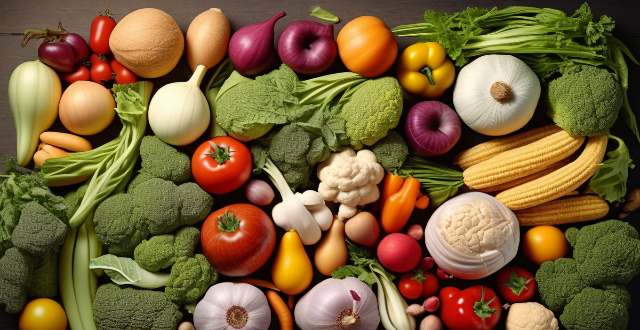The article discusses various sources for buying organic food, including farmers markets, online stores, health food stores, and community supported agriculture (CSA) programs. Each option has its own set of benefits and drawbacks, such as freshness, convenience, selection, cost, and support for local agriculture. The article emphasizes the importance of making healthy choices for oneself and family by choosing organic food.

Best Sources for Buying Organic Food
Organic food has become increasingly popular in recent years, as more people are looking to make healthier choices for themselves and their families. However, finding the best sources for buying organic food can be a challenge. In this article, we will discuss some of the top options for purchasing organic food.
1. Farmers Markets
Farmers markets are an excellent place to find fresh organic produce. These markets typically feature local farmers who grow their crops without the use of synthetic pesticides or fertilizers. Shopping at farmers markets not only supports small-scale agriculture but also ensures that you get the freshest possible produce.
Pros:
- Fresh and locally grown produce
- Supports small-scale agriculture
- Often less expensive than grocery stores
Cons:
- Limited selection compared to larger stores
- Availability may vary depending on the season
2. Online Stores
Online stores have become a convenient option for purchasing organic food. Many online retailers specialize in organic products, offering a wide range of fruits, vegetables, meats, and other items. Some popular online stores include Amazon, Thrive Market, and Whole Foods Market.
Pros:
- Convenient and easy to shop from home
- Wide variety of organic products available
- Often offer competitive pricing and discounts
Cons:
- Shipping costs can add up over time
- Quality control may be an issue with certain vendors
3. Health Food Stores
Health food stores are another great option for finding organic food. These stores typically carry a wide variety of organic products, including fresh produce, meats, dairy, and packaged goods. Some popular health food store chains include Sprouts Farmers Market, Natural Grocers, and Whole Foods Market.
Pros:
- Wide variety of organic products available
- Often offer knowledgeable staff to answer questions
- May offer additional health-related services (e.g., nutrition counseling)
Cons:
- Can be more expensive than other options
- Limited selection compared to larger grocery stores
4. Community Supported Agriculture (CSA) Programs
CSA programs are a unique way to purchase organic food directly from local farmers. With a CSA program, you pay a fee upfront to receive a share of the farmer's harvest throughout the growing season. This model allows you to support local agriculture while receiving fresh, seasonal produce each week.
Pros:
- Directly supports local farmers and sustainable agriculture practices
- Ensures access to fresh, seasonal produce throughout the year
- Often includes unique varieties not found in traditional grocery stores
Cons:
- Limited selection compared to larger stores or online retailers
- Availability may vary depending on the season and weather conditions
In conclusion, there are several excellent options for purchasing organic food. Whether you prefer shopping at farmers markets, online stores, health food stores, or participating in a CSA program, each option offers its own set of benefits and drawbacks. By considering your needs and preferences, you can find the best source for buying organic food that meets your requirements and supports healthy eating habits.